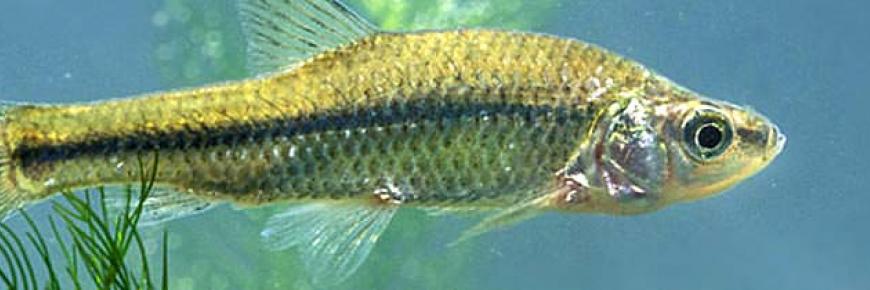A lot of Azolla
 Azolla is one of the most invasive plants in the UK today. Capable of doubling its size in warm weather, the plant can quickly form dense mats of floating vegetation which are detrimental to the aquatic ecosystem below.
Azolla is one of the most invasive plants in the UK today. Capable of doubling its size in warm weather, the plant can quickly form dense mats of floating vegetation which are detrimental to the aquatic ecosystem below.
So how did it get here? Well unfortunately that is a story you will have heard before. Azolla was originally imported from the Americas as an ornamental pond plant back in the 1800s. Due to its invasive nature, it soon escaped the confines of ponds and now can be found causing considerable damage in the wild.
Once established Azolla blocks out light, preventing photosynthesis and reducing oxygen levels in the water.

This has a lethal effect on aquatic flora and fauna. The mats grow up to 30 cm thick, impeding water flow and preventing the passage of recreational boats, decreasing the amenity value of the affected water body.
To make matters worse, as with floating pennywort, Azolla is very problematic to remove. The plant can regenerate from tiny fragments making mechanical removal almost impossible. Furthermore, many herbicides are not suitable for use in the aquatic environment, limiting chemical control options.
So what control options are left?
Luckily for us there is hope!
One of the main reasons invasive species are so successful outside of their native range is because they are freed from their natural predators. In some cases scientists have been able to bring highly invasive plants back under control by introducing a natural enemy/natural enemies into the introduced range. This is known as biological control.
 In the case of Azolla, meet the North American weevil: Stenopelmus rufinasus. This weevil is not native to the UK but is believed to have been accidentally inftroduced to the UK along with the plant itself, and is thought to have been present since 1921. Back home, the weevil is very successful at controlling Azolla and these positive results have been replicated in the UK and South Africa.
In the case of Azolla, meet the North American weevil: Stenopelmus rufinasus. This weevil is not native to the UK but is believed to have been accidentally inftroduced to the UK along with the plant itself, and is thought to have been present since 1921. Back home, the weevil is very successful at controlling Azolla and these positive results have been replicated in the UK and South Africa.
CABI, one of our partners, have been promoting the use of this weevil as a biological control agent for Azolla utilising funding from the RINSE project. The work has been carried out under our Field Trials and Demonstration Work Package. The results and evaluation of this work will be available in the near future.
In the meantime, help prevent the spread of Azolla and Be Plant Wise.

